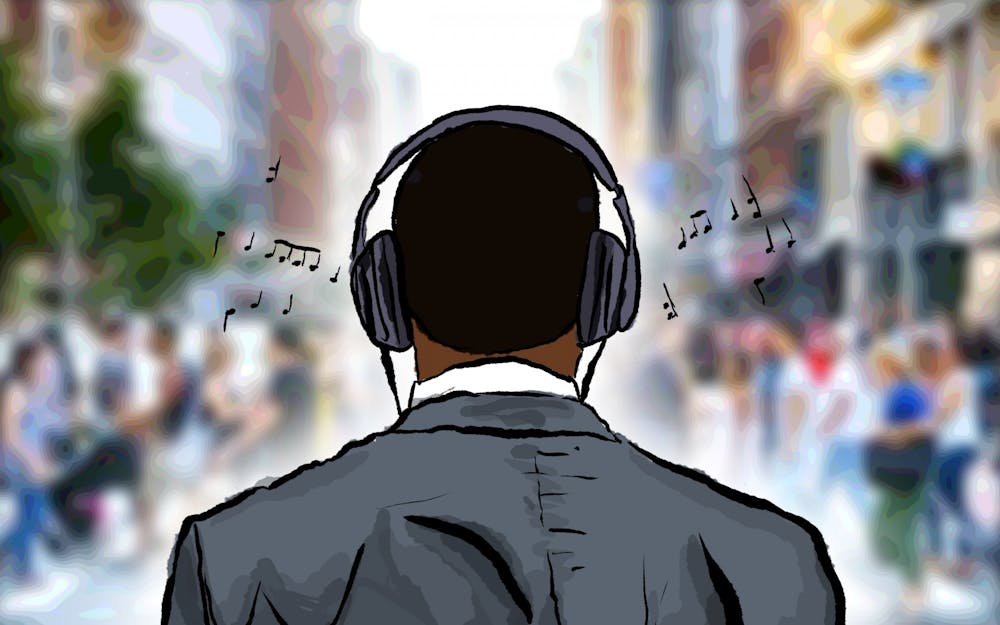I rarely leave my apartment for my daily morning mile to class without my AirPods and my latest alternative music playlist. I am not the only one with headphones on during my walk down 10th Street toward campus. It feels like everyone surrounding me has their headphones in every morning.
I listen to music when I walk because it helps pass time. I immerse myself in the music playing in my ears — it consumes me when I am not in class. I listen to music at the gym, the grocery store and the library.
We become wrapped up in AirPods and our iPhones. We need to take time to experience the arts and all music. Since we pay extensive amounts of college tuition, IU should provide more music resources to all students, whether that be access to free streaming services or free student tickets.
Music is available to college students at minimal costs. Spotify offers a free music plan where you can play songs similar to the songs you search. While you might need to skip several songs to hear the one you desire, there is a good chance it will come on.
Similarly, Apple Music offers $4.99-a-month student pricing for unlimited streaming. With campus jobs continuously paying higher hourly wages each semester, it has become increasingly easier to afford music streaming services as college students.
But this creates a potentially damaging effect on attendance rates at student art performances.
According to a study by John Ternovski and Taha Yasseri, live performances by popularly streamed artists boost their streams on music platforms. The same cannot be said for lesser-known artists or artists popularized on social media by friends.
Students know what they like to hear. We are probably less likely to engage in other events, such as musical theater or recitals in the Jacobs School of Music because these performances attract niche audiences at high ticket prices. I have seen these tickets in the $20-range or higher.
In another problem, artists have felt like streaming services underpay them for their talents, according to Vox. Recent years have led emerging artists, such as Taylor Swift, to remove streamable songs due to a feeling of underappreciation.
If Apple Music or Spotify are too expensive for some, YouTube is an alternative option. After a short advertisement, you can listen to basically any song free of charge.
According to a Time article, Kim Innes, a public health professor at West Virginia University, compared listening to music to meditation. The outcomes were very similar and both proved to boost mood and improve stress, thus bettering our overall health.
Would more students commit to supporting the arts and better their health if IU provided student tickets at no cost?
In December 2021, I attended the Jacobs School of Music production of “The Nutcracker” to see a friend performing. My student ticket was $29. I was astounded at the expense of a ticket in the nosebleeds of the Musical Arts Center on campus. The performance was incredible, but I do not have that kind of money to drop every weekend going to see the arts.
The same price as my ticket to “The Nutcracker” is payment for more than five months of unlimited streaming on Apple Music. While the experience would have been significantly different, I could have been more productive in the library listening to the “The Nutcracker” soundtrack.
Innes indicates music can improve our overall health. When I saw my friend finish “The Nutcracker,” I had never seen a bigger smile on her face. The release of dopamine following a performance is deemed rewarding when received by human endorsement for a job well done.
Live music creates a community. As music streaming services continue to dominate the industry, remember the possible advantages of going to a show and diversifying your library of songs. Universities should therefore further student involvement, allowing all interested students to attend performances at affordable costs.
John Hultquist (he/him) is a junior studying community health with a double minor in urban planning and community development and nutrition.




